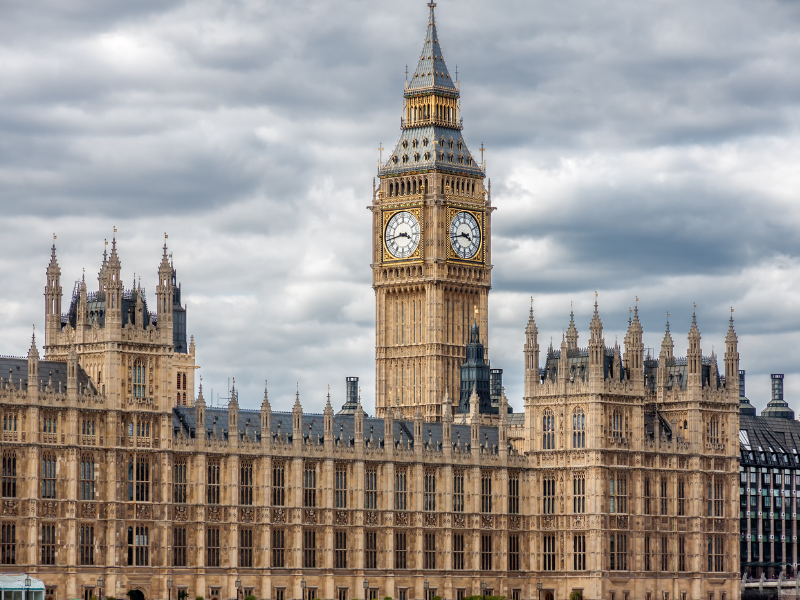Mariam Kemple Hardy of Oil Change International reflects on a vital priority for campaigners in the run up to the next general election.
I’m going to start this blog with a health warning: everything that follows assumes two things. First, that we will have a new UK Government after the next general election, most likely headed by the Labour Party. Second, that such a Government would be a better bet for progressive change than the current political administration.
Yet, there are huge risks that even this ‘better bet’ could be an opportunity wasted because of three things: complacency in our campaigning; inexperience of our campaigners; and the way in which the current Government develops policy. The first two are under our control, we have the power to mitigate them. But the third is not so easy and requires political will to change.
Let’s review those risks.
Complacency in campaigning
Look, I get it. Pretty much everyone in civil society is drained. So little progress is being made. On too many fronts we’re going backwards. Fundamental principles of fairness and decency are being undermined. I say all of this as someone who recently spent six years in the refugee sector.
Right now, it can feel like any change would be better – so it will be tempting to breathe a sigh of relief if control does shift at the next election. But our reaction must be the exact opposite. A new Government should be the starting gun telling us to dramatically switch up gears. We’ve been playing defence for so long it’s easy to forget the importance of playing offence. It’s when we think there’s more opportunity for impact that we need to set our ambitions higher and work all the harder.
Make no mistake, the next Government will be staring at a bleak context with very little in the piggy bank. Depending on how slim its majority is, its confidence to make the radical reforms we need may be low. So, as campaigners, we must see a new Government as a new target, not a promised land. The pedal will need more gas.
Inexperience of campaigners
The fact is that anyone under the age of 35 is likely to only ever have campaigned in the charity sector under a Conservative-led Government. This matters, as most charity staff doing the day-to-day influencing work are under 35.
Overnight, relationships with allies will shift. The stakes on both sides of the relationship get higher. Influencing strategies will need to adapt. While things have undoubtedly changed since 2010, we should seek out lessons from those who campaigned successfully under the New Labour administrations. What did a healthy relationship look like? Which strategies worked and which didn’t?
Government and governance
And so, to the final risk: governance. The will to embrace higher standards of transparency and engagement in democratic debate are not things any Government instinctively finds easy to do once in power. But transforming the way policy is made is at the heart of how we achieve social change. That’s why, although it’s definitely not sexy, calling for a commitment to true and accountable consultation may be the most important policy ask we can make as civil society right now.
It wasn’t all that long ago that we still had the basic working functions of transparent governance in central government, including actual engagement with civil society on policy development. Whether or not the advice of civil society was heeded, there was a mostly genuine process of eliciting that advice. Green and white papers were taken seriously. Legislation would often be produced after lengthy engagement (yes, sometimes far too lengthy!) that led to real changes in the original proposals. This meant that legislation generally arrived in Parliament better drafted, better tested, and with fewer surprises.
This is in stark contrast to what we have now: consultation timelines and processes so limited there’s not even a pretence it’s not tokenistic. Instead, legislation is too often thrown half-baked at Parliament in a ‘suck-it-and-see’ Government strategy to try their hand at what they can get away with.
Bringing back transparency and true consultation in governance does not sound exciting but it is essential for a healthy democracy. It would mean that policy is better informed and parliamentary time less wasted on clearing up ill-thought-through legislation. It may even help rebuild trust between politicians and the public.
For too long the Government has acted as though its only obligation to engage with the public on policy in any meaningful way has been every few years at the ballot box. Yet, if the next Government fails to change this mindset, the rot will have set in. Instead of an aberration, it will become the norm.
As we come together to determine what our big, bold asks will be ahead of the next election, the real game-changer would be to call for a commitment to govern with true and accountable civil society consultation. Without that, we run the risk of forever just shouting into the void.

